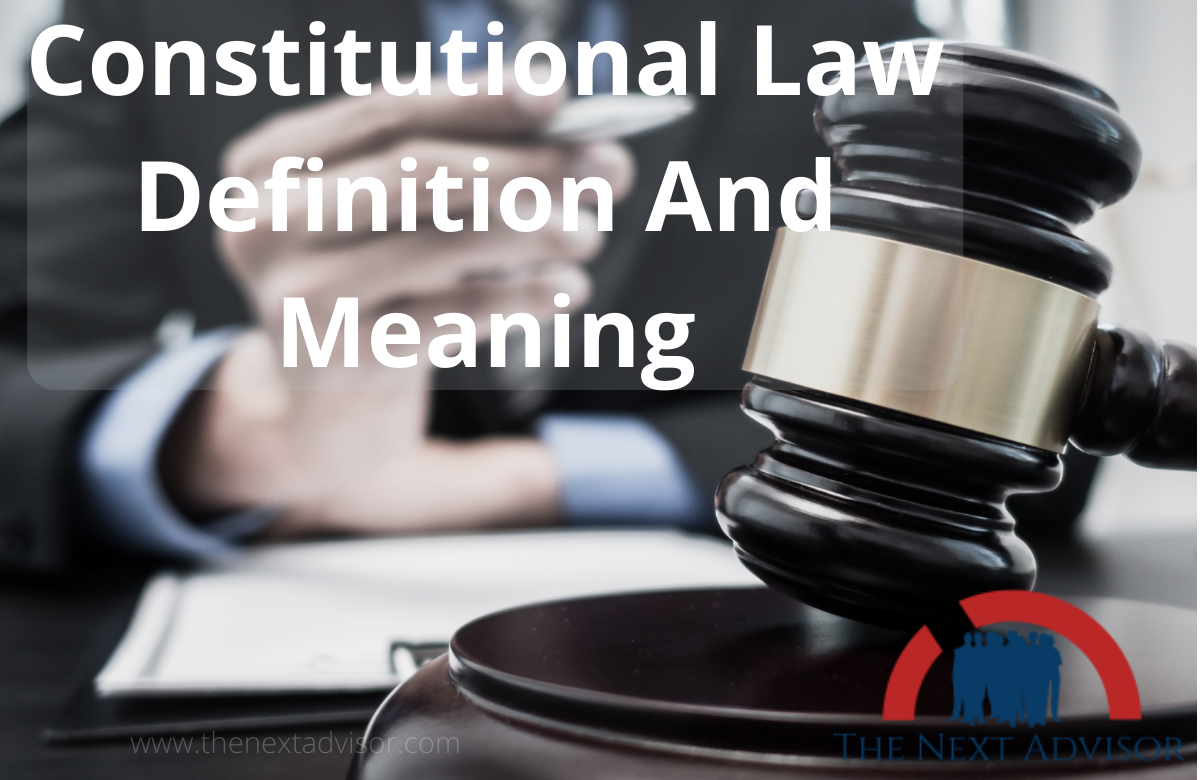There is no hard and fast definition of Constitutional law. According to one very wide definition, Constitutional law is that part of the law that relates to the system of the government of the country. It is more convenient to define constitutional law definition and meaning, has meant those laws which regulate the structure of the principles organs of the government. And their relationship to each other and to the citizens of the country. And also we determine their main functions.
Where there is a written constitution in a country, emphasis is naturally based on the rule which it contains and on the way in which they have been interpreted and applied by the highest board with constitutional jurisdiction. Constitutional law consists both of legal rules in the strict sense, and of usage commonly called conventions. which without being connected or accepted and binding by all who are concerned with the government. Many of the rules and practices under which our system of government worked are not part of the law. In the sense that their violation may lead directly to proceedings in a court of law.
Professor Salmond Says, ” Constitutional law is, as the name implies, a body of those legal rules which determine the Constitution of the State. Here State means any country. “
According to Dicey:–
Professor Dicey says, ” Constitutional law includes all rules which directly or indirectly affect the distribution or the exercise of the sovereign power in the State. “
Introduction Of Constitutional law Definition And Meaning
Constitutional law is recognized as the branch of the public law of the state. It is categorized as public law because it is applied between the person and the government and among the organ of the state. The constitutional law is accepted as the national law. It is also called local law because it is applied inside the country as a fundamental law.
The constitutional law determines the structure of the Government and its power as well as its application. It arranges the functions and the relation of the organs, which are established to govern the state. So it is known as the main part of the jurisprudence which interprets the constitution and prescribes the Rights, Duties, and Function of the constitutional organs.
What is constitutional law Definition and meaning
It is the fundamental law of the state.
It does not relate to private law.
It is the public law.
It is applied between person and governmental organs.
It is the law to determine the limitation of governmental structure, power and exercise.
The constitution determines the Rights and Duties of the ruled class and guides the Government to rule. The ruling class always wants to rule by gaining maximum Rights and the ruled class wants to utilize more facilities, freedom, or fundamental Rights.
The constitution, which is the fundamental law of the country, determines the state governing system of that nation. The constitution separates the jurisdictions of the Executive, the Legislative, and the Judiciary, the three organs of the state, and limits them to their jurisdictions.
No conservation of the people’s Rights is imagined without the constitution. The constitution is necessary to all of the states whether they are democratic or absolute, rich or poor, big small.
Difference
Note that the term “constitutional law” is much more extensive in nature with its concept than the term “constitution”.
The constitutional law includes the constitution, judicial precedents, relevant statutory laws, and conventions.
It has been developed by interpretation of the constitution through judicial review.
The constitutional law of a country comprises of different ‘legal’ and ‘non-legal’ norms. Legal norms are those which can be enforced and applied by the courts, whereas non-legal norms refer to convention usages, practices, and customs.



























